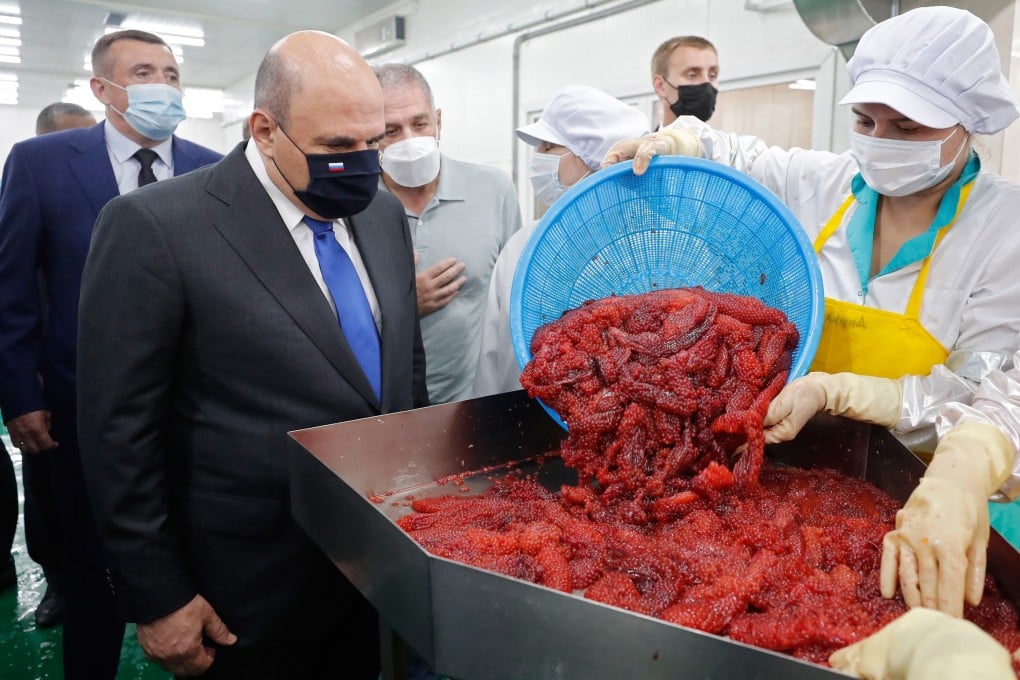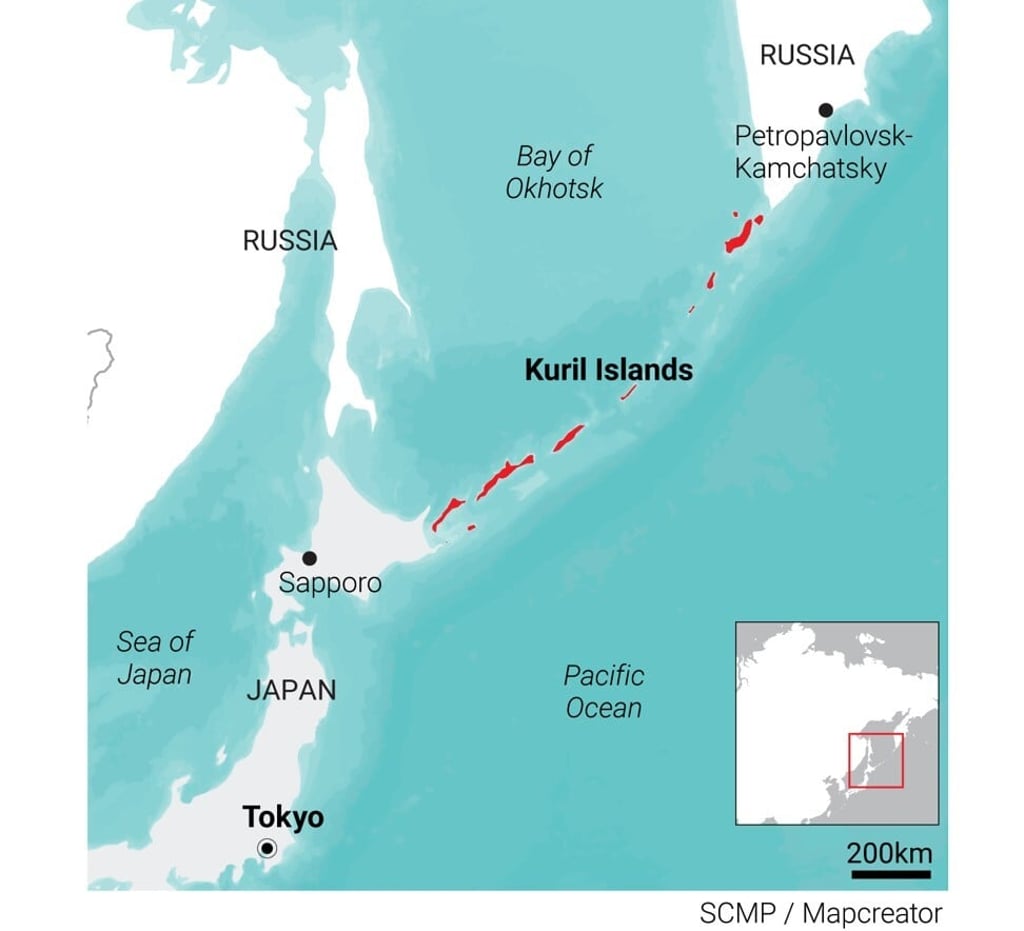Advertisement
Japan and Russia’s Kuril Islands dispute in spotlight with Putin’s special economic zone plan
- Tokyo and Moscow have summoned each other’s ambassadors over the Russian prime minister’s visit to the disputed island chain amid the Olympic Games
- The trip comes as Russia is planning economic projects with Japan, and as analysts say Suga has distanced himself from predecessor Abe’s strategy of dialogue
Reading Time:4 minutes
Why you can trust SCMP
6

A visit by Russia’s premier this week to an island chain claimed by Japan has fuelled a fresh bilateral disagreement between both sides, and a suggestion that Moscow’s actions were deliberately timed during the Tokyo Olympics to bring about a “toned-down” response from Japan.
Prime Minister Mikhail Mishustin’s visit on Monday to the Kurils, also known as the Northern Territories, was the first by a Russian premier since a constitutional amendment last July barred Russia from ceding territory.
The island chain, with a population of about 20,000, was seized by the Soviet Union after Japan’s World War II surrender in 1945. Tokyo has long sought the return of the Russian-held islands sparking a feud that has prevented the two countries from signing a formal peace treaty.
Advertisement
Japan summoned Russia’s ambassador in Tokyo over the visit, while Moscow in turn summoned Japan’s ambassador to Russia over what it called Tokyo’s “hostile” behaviour.
Advertisement
Russian observers said Mishustin’s trip to Iturup Island, known as Etorofu in Japan, was part of the prime minister’s duties.
Advertisement
Select Voice
Select Speed
1.00x
